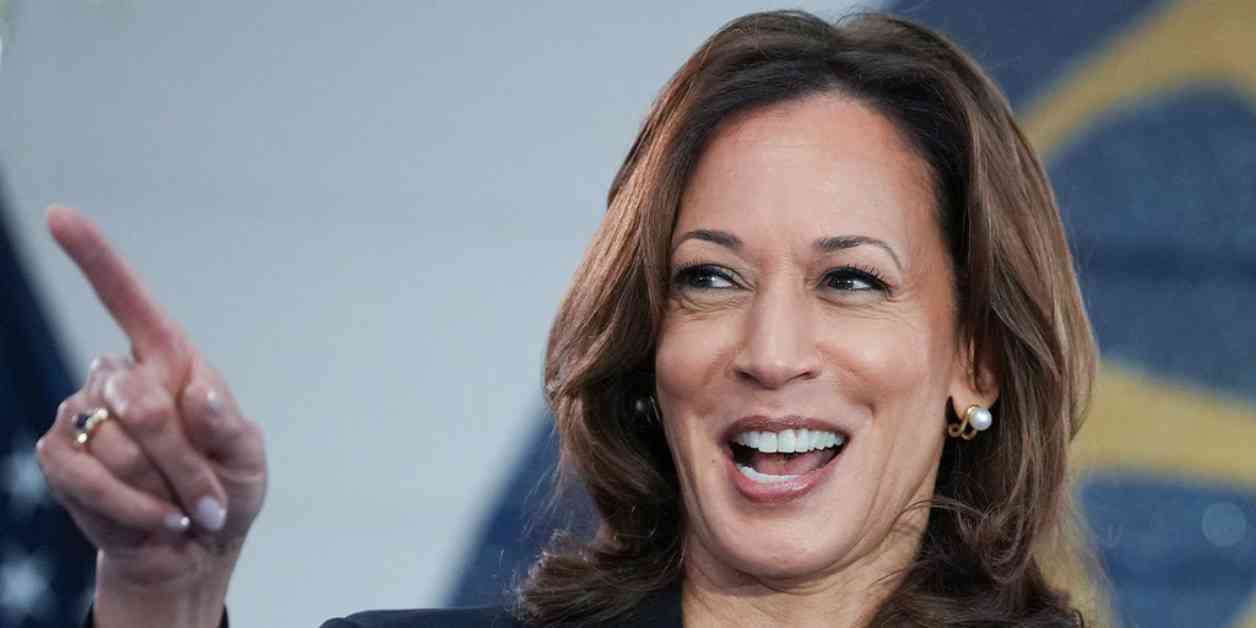Vice President Kamala Harris has been facing criticism for her evolving stance on key issues, with accusations of flip-flopping and playing politics. While unnamed officials for Harris have announced shifts in her positions on issues like fracking and “Medicare for All,” Harris herself has not publicly addressed these changes. This lack of transparency has raised questions about her authenticity and trustworthiness as a political leader.
Navigating Policy Shifts: The Debate Over Harris’ Position Changes
Republican strategist Dallas Woodhouse has suggested that Harris may be allowing her campaign staffers to announce policy shifts on her behalf, rather than taking ownership of these changes herself. This approach, according to Woodhouse, could be seen as a way for Harris to avoid direct scrutiny and accountability for her shifting positions. He argues that the American public should not accept these changes without a thorough explanation from Harris herself.
Woodhouse’s concerns are echoed by other political analysts, who question the credibility of a candidate who appears to be disengaged from her own policy decisions. Colin Reed, a Republican strategist, points out the inconsistencies in Harris’ position changes, particularly on issues like “Medicare for All,” which he estimates would cost trillions of dollars. Reed suggests that Harris’ sudden shifts in position raise doubts about her motives and integrity as a political leader.
Fracking: A Controversial Issue in Harris’ Campaign
During her 2019 presidential run, Harris made headlines when she declared her support for a ban on fracking, a key issue in battleground states like Pennsylvania. However, campaign officials for Harris have now stated that she will not pursue a ban on fracking if elected president. This reversal has drawn criticism from Republicans, who have used Harris’ past statements on the issue to attack her in campaign ads.
The debate over fracking reflects a larger trend in Harris’ campaign, where policy shifts and reversals have become a point of contention. Critics argue that Harris’ changing positions on issues like fracking undermine her credibility and raise questions about her commitment to her original policy positions. As the election season progresses, voters will be looking for clarity and consistency from Harris on these critical policy issues.
“Medicare for All”: A Shift in Harris’ Healthcare Policy
Another key issue that has seen a shift in Harris’ stance is “Medicare for All.” During her 2019 presidential campaign, Harris was a vocal supporter of the healthcare plan, which aims to provide universal access to medical care. However, a campaign official has now indicated that Harris will not be pushing for “Medicare for All” in her current campaign.
This change in Harris’ healthcare policy has raised eyebrows among political observers, who question the reasons behind her shift in position. Reed, the Republican strategist, points out the significant cost implications of implementing “Medicare for All” and suggests that Harris’ change in stance may be driven by political expediency rather than genuine policy considerations. As Harris navigates these shifts in her healthcare policy, voters will be looking for clarity and consistency in her approach to addressing the healthcare system’s challenges.
Navigating Public Perception: The Challenges of Harris’ Campaign Strategy
As Harris faces criticism for her evolving stance on key issues, she must also navigate public perception and trust in her leadership. The lack of transparency and clarity in her policy positions has raised doubts about her authenticity and integrity as a political leader. In a highly polarized political environment, where trust in elected officials is at a premium, Harris must find a way to communicate her policy decisions effectively and convincingly to the American public.
Woodhouse’s suggestion that Harris should personally address her position changes is a valid one, as it would allow her to demonstrate accountability and transparency in her decision-making process. By taking ownership of her policy shifts and explaining the reasons behind them, Harris can build trust with voters and dispel any doubts about her motives. As the 2024 presidential campaign heats up, Harris must find a way to navigate these challenges and communicate her vision for the country effectively.
Conclusion: Navigating the Challenges of Policy Shifts in Harris’ Campaign
Vice President Kamala Harris’ evolving stance on key issues has become a point of contention in her 2024 presidential campaign. Accusations of flip-flopping and playing politics have raised questions about her authenticity and trustworthiness as a political leader. As Harris navigates these challenges, she must find a way to communicate her policy decisions effectively and convincingly to the American public.
By addressing her position changes directly and transparently, Harris can build trust with voters and demonstrate her commitment to her policy positions. As the election season progresses, voters will be looking for clarity and consistency from Harris on critical issues like fracking and healthcare policy. Navigating these challenges will be crucial for Harris as she seeks to secure the trust and support of the American electorate in the 2024 presidential election.





















